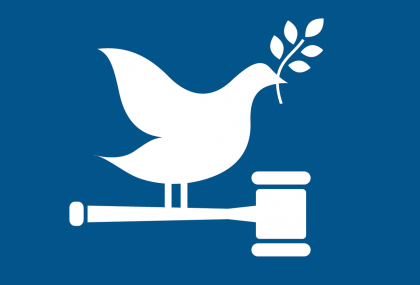
VNG International, VVSG, FCM and UVCW, all CIB Working Group members shared case studies regarding Peace, Justice and Strong Institutions, to be used for the UNDP report about SDG 16, which will be presented at the HLPF in New York in July.
VNG International reported on their IDEAL program which for example assists communes in Mali to improve local water governance and involve their communities who are reliant upon sustainable water management. In Rwanda the IDEAL program supports secondary city districts to become more effective and responsive in managing the urbanization process. Both efforts contribute to the achievement of peaceful and inclusive societies and effective, accountable and inclusive institutions at local level.
VVSG reported on their pilot project to 'localize' the SDGs that has resulted in a series of tools and recommendations on how to integrate the SDGs into a local policy documents, such as election manifestos, the context analysis, the administrative memorandum and the multi-annual strategic plan. An extensive, but user-friendly set of 205 local SDG-indicators - adjusted to the context of local authorities in Flanders - and an accompanying manual was developed, enabling them to establish a baseline and monitor progress.
FCM reported on their project in Haiti in which the local governments of the Les Palmes region (Gressier, Léogâne, Petit-Goâve and Grand-Goâve) have become more inclusive, effective and accountable with the creation of local citizen committees. This experience shows that, even in a situation of political polarization and weak institutions, it is possible to put in place transparent, democratic and accountable structures.”
UVCW reported on their Municipal International Cooperation (MIC) Programme, which is an instrument of the Belgian Development Cooperation Agency. Its general objective is to contribute, through city-to-city partnership, to strengthening the capacities of local institutions in 5 African countries to tackle their own development. It aims to one of the complex phenomenon of poverty fight against poverty, namely inadequate access of the population to citizenship, and therefore also to the majority of public goods and services, and more particularly to local ones.
Please find more information about the case studies below:
